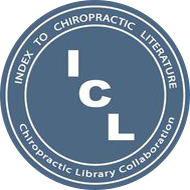OBJECTIVE: To review spinal cord strains arising from postural loads.
DATA COLLECTION: A hand search of available reference texts and a computer search of literature from the Indexed Medicus sources were collected, with special emphasis placed on spinal cord strains caused by various postural rotations and translations of the skull, thorax, and pelvis
RESULTS: All spinal postures will deform the neural elements within the spinal canal. Flexion causes the largest canal length changes and, hence, the largest nervous system deformations. Neural tissue strains depend on the spinal level, the spinal movement generated, and the sequence of movements when more than one spinal area is moved.
CONCLUSIONS: Rotations of the global postural components (head, thoracic cage, pelvis, and legs) cause stresses and strains in the central nervous system and peripheral nervous system. Translations of the skull, thorax, and pelvis, as well as combined postural loads, need to be studied for their effects on the spinal canal and neural tissue deformations. Flexion of any part of the spinal column may generate axial tension in the entire cord and nerve roots. Slight extension is the preferred position of the spine as far as reducing the magnitude of mechanical stresses and strains in the central nervous system is concerned.
This abstract is reproduced with the permission of the publisher. Full text is available by subscription.
|
